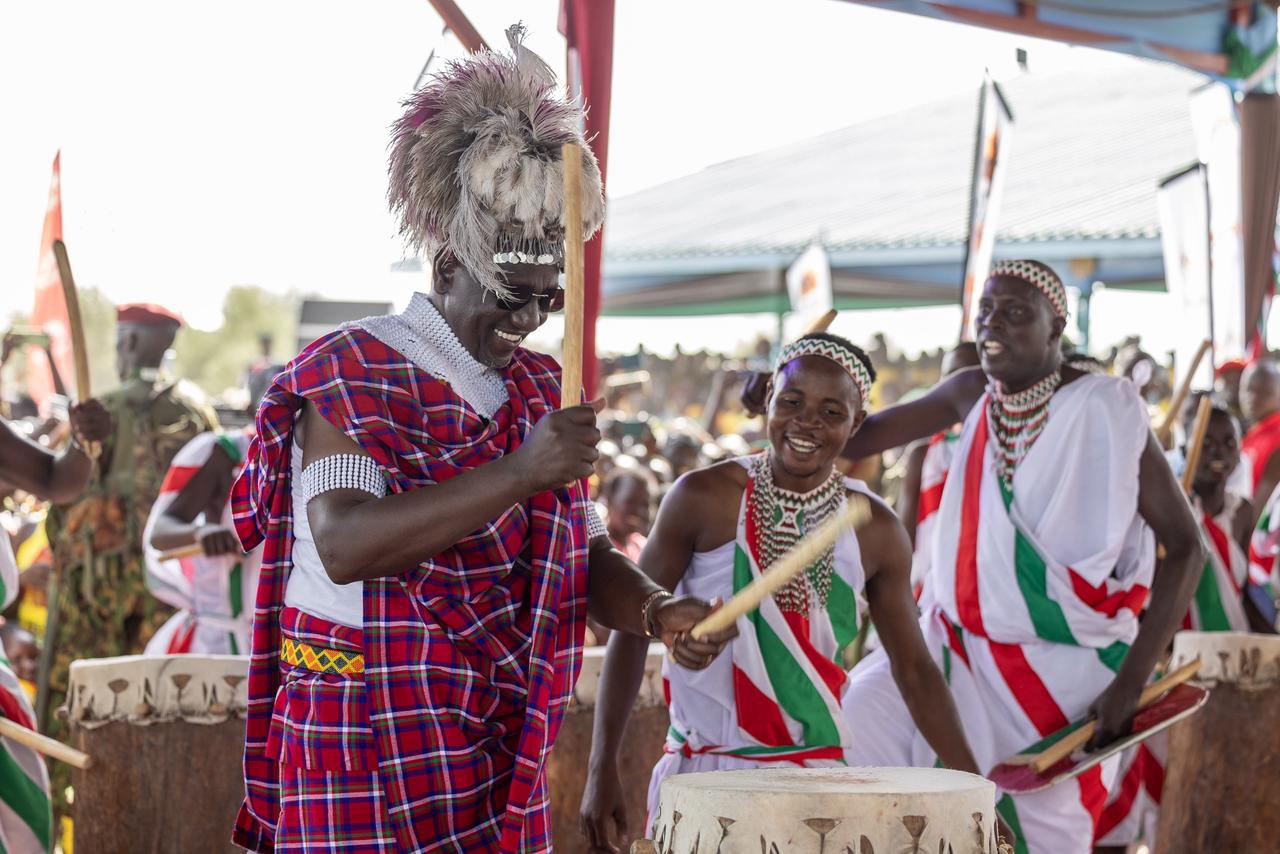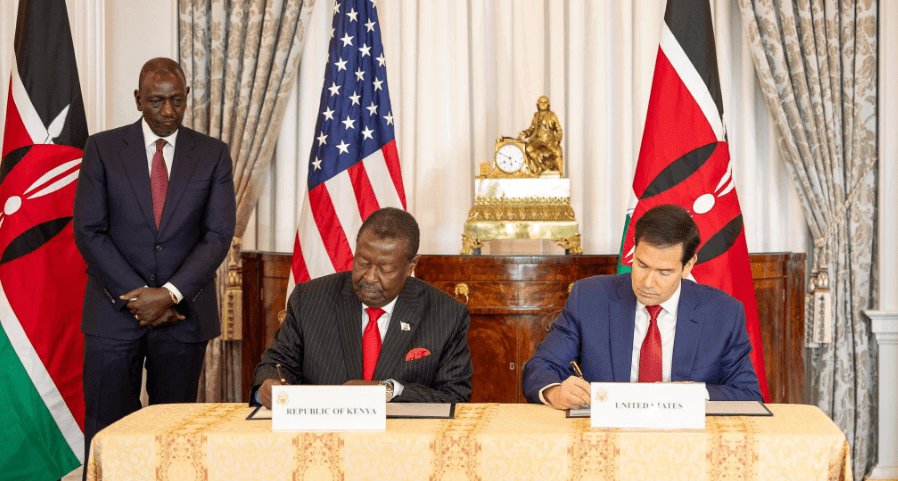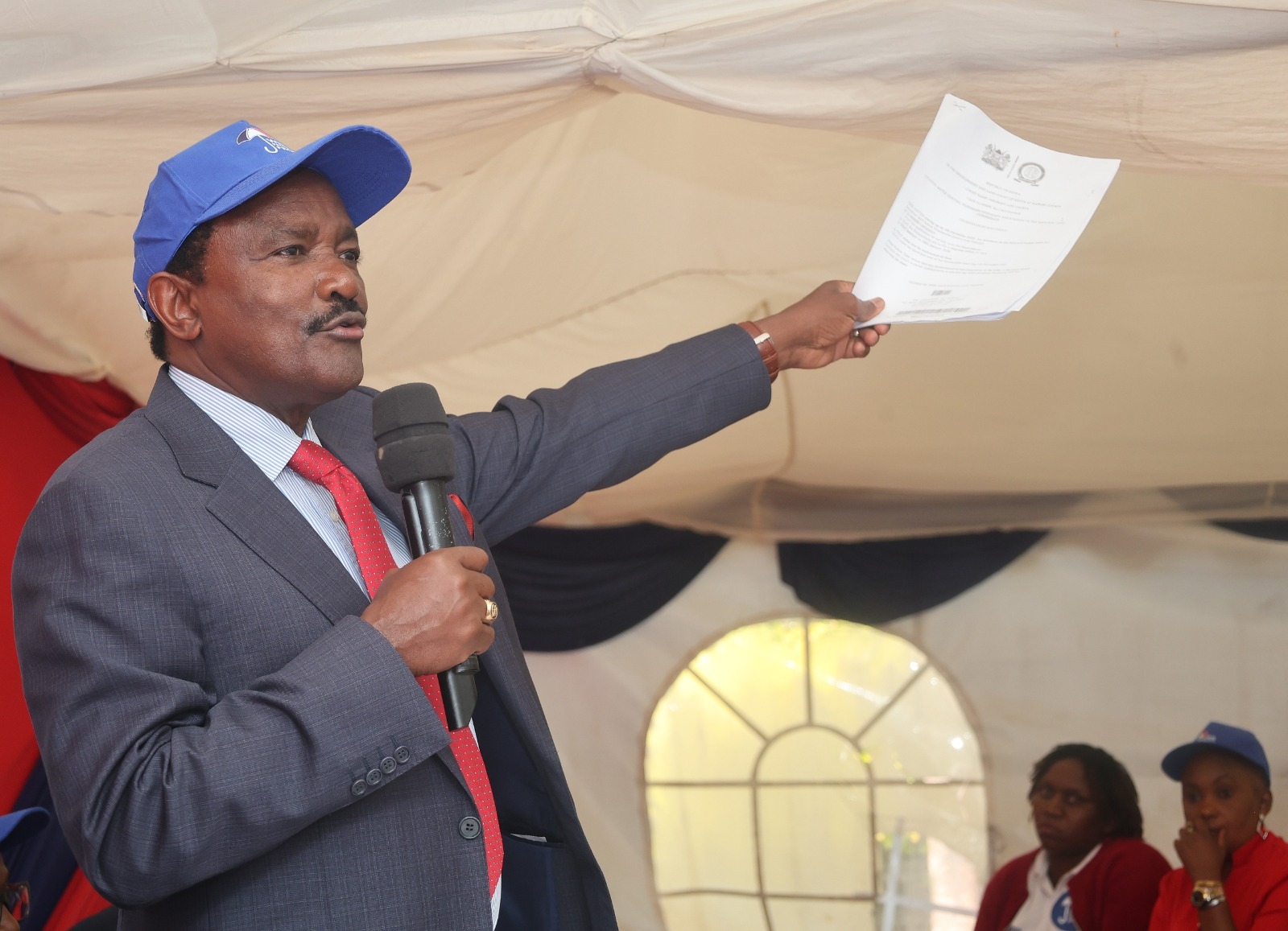Russian forces have launched a major assault on Ukraine, firing missiles on cities and military targets.
The invasion by land, air and sea began after a pre-dawn TV address where Russian President Vladimir Putin demanded that Ukraine's military lay down its arms.
Initial reports of casualties included Ukrainian civilians and soldiers, and Russian troops.
Ukraine's leader said his country "won't give up its freedom".
"Russia has embarked on a path of evil, but Ukraine is defending itself," President Volodymyr Zelensky tweeted.
Ukraine has declared martial law and severed all diplomatic relations with Russia. It says weapons will be given to anyone who wants them.
In the capital Kyiv, home to almost three million people, warning sirens blared out as traffic queued to leave the city and crowds sought shelter in metro stations. "We don't understand what we should do now," one woman called Svetlana told the BBC. "We're now going to a place where we can be safe and we hope we can leave safely."
Mark, a 27-year-old sales executive, said he was ready to be called up to fight. "We don't have another way," he said.
Several neighbouring countries have begun preparations to take in a large number of refugees. Moldova alone said more than 4,000 people had come over the border from Ukraine.
Russian forces have launched a major assault on Ukraine, firing missiles on cities and military targets.
The invasion by land, air and sea began after a pre-dawn TV address where Russian President Vladimir Putin demanded that Ukraine's military lay down its arms.
Initial reports of casualties included Ukrainian civilians and soldiers, and Russian troops.
Ukraine's leader said his country "won't give up its freedom".
"Russia has embarked on a path of evil, but Ukraine is defending itself," President Volodymyr Zelensky tweeted.
Ukraine has declared martial law and severed all diplomatic relations with Russia. It says weapons will be given to anyone who wants them.
In the capital Kyiv, home to almost three million people, warning sirens blared out as traffic queued to leave the city and crowds sought shelter in metro stations. "We don't understand what we should do now," one woman called Svetlana told the BBC. "We're now going to a place where we can be safe and we hope we can leave safely."
Mark, a 27-year-old sales executive, said he was ready to be called up to fight. "We don't have another way," he said.
Several neighbouring countries have begun preparations to take in a large number of refugees. Moldova alone said more than 4,000 people had come over the border from Ukraine.
Thursday's invasion followed weeks of escalating tensions, as Russia massed troops along Ukraine's borders.
The UK, EU and other Western allies have vowed to impose tough new sanctions to punish Moscow, but say they will not send in troops.
"These are among the darkest hours of Europe since the Second World War," EU foreign affairs chief Josep Borrell said.
Dozens of people have been killed, including about 10 civilians. Six died in an air strike in Brovary near the capital Kyiv. A man was also killed in shelling outside the major north-eastern city of Kharkiv.
A Ukrainian presidential adviser said that more than 40 soldiers had died and many more were wounded. Ukraine said it had killed 50 Russian troops and shot down six Russian aircraft, but this has not been verified.
What Russia has targeted
Mr Zelensky said Russia had positioned almost 200,000 troops and thousands of combat vehicles on Ukraine's borders ahead of Thursday's invasion.
Moscow first struck Ukraine's military infrastructure and border guard units. Then Ukrainian forces said Russian military vehicles had crossed the border near Kharkiv in the north, Luhansk in the east, Russian-annexed Crimea in the south and from Belarus too. Belarus's authoritarian leader Alexander Lukashenko said his country's military were not involved but could be if needed.
Russian tanks were later seen on the outskirts of Kharkiv, a city of 1.4 million people. Russian forces also reportedly landed by sea at Ukraine's major port cities of Odesa on the Black Sea and Mariupol on the internal Sea of Azov.
Much of the fighting appears to be centred around the east.
Residents of Kharkiv, Ukraine's second largest city, say windows in apartment blocks were shaking from constant blasts as the Ukrainian military and Russian forces exchanged shellfire.
But clashes have have also been taking place around the capital Kyiv in the north and the southern ports of Odesa and Mariupol.
Ukraine's army said Kyiv's Boryspil international airport was among a number of airfields that had been bombed, along with military headquarters and warehouses in the big cities of Kyiv, Dnipro, Kharkiv and Mariupol.
Footage verified by the BBC showed missiles slamming into an airport in the western city of Ivano-Frankivsk.
"WATCH: The latest news from around the World"















